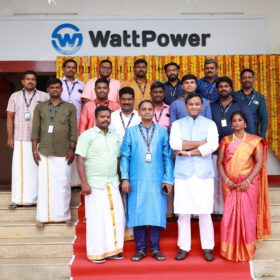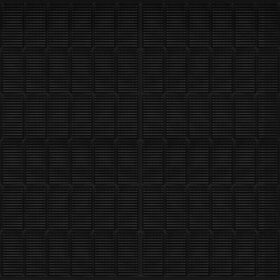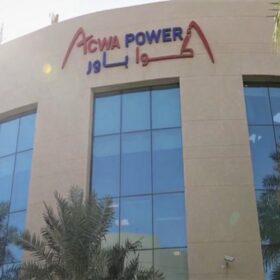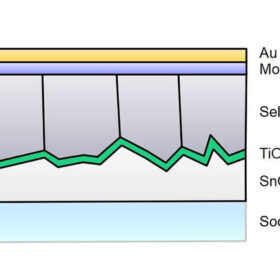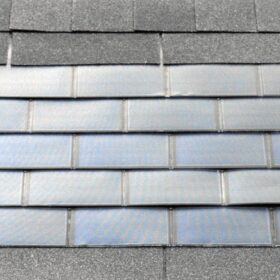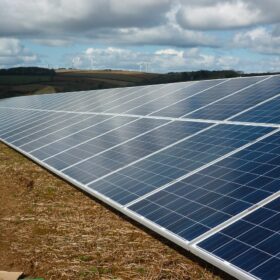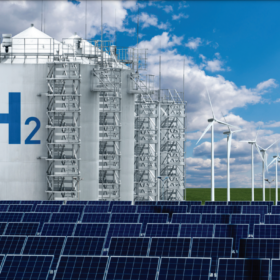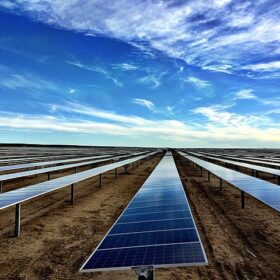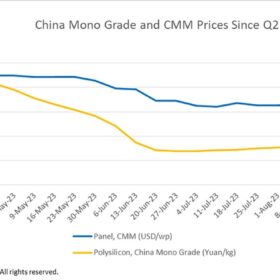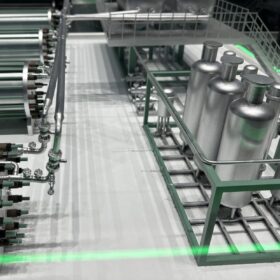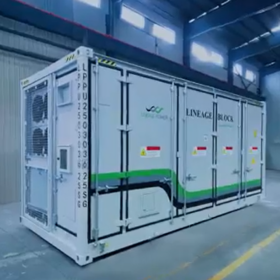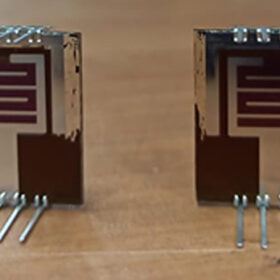WattPower launches 10 GW solar inverter factory in India
WattPower has inaugurated a string solar inverter factory with an annual production capacity of 10 GW in Chennai, Tamil Nadu.
Sharp unveils all-black 420 W TOPCon solar panel with 21.51% efficiency
Sharp’s new IEC61215- and IEC61730-certified solar panels have an operating temperature coefficient of -0.30% per degree Celsius, with 21.51% efficiency.
The Hydrogen Stream: Gulf nations moving forward with tech cooperation
Acwa Power and Eni have signed a hydrogen development deal, while AFC Energy has signed an agreement with Tamgo to sell hydrogen generators.
Selenium solar cell built with laser-annealing achieves record fill factor of 63.7%
Built by Danish researchers, the device also achieved a power conversion efficiency of 5.0%. They designed the cell with a soda-lime glass substrate, a tin oxide (FTO) layer, an electron transport layer made of titanium oxide (TiO2), a selenium absorber, a molybdenum oxide (MoOx) layer, and a gold (Au) metal contact.
IEA-PVPS releases guide for applying innovation system approach to BIPV
IEA-PVPS has published a new handbook that provides support for Technological Innovation System (TIS) analysis for building-integrated photovoltaics (BIPV).
IREDA, IIFCL team up to finance renewable energy projects
Indian Renewable Energy Development Agency Ltd (IREDA) and India Infrastructure Finance Co. Ltd (IIFCL) will engage in co-lending and loan syndication for all categories of renewable energy projects.
Andhra Pradesh requires $10-15 billion to achieve green hydrogen capacity of 500 ktpa by 2030
Andhra Pradesh requires an estimated $10-15 billion to achieve 500 ktpa green hydrogen capacity by 2030. Around 70% of this investment will be needed to create renewable energy infrastructure such as solar and wind power generation plants, with the balance for electrolyzer capacity additions.
Bila Solar to make lightweight solar modules in US
Bila Solar – a Singapore-based developer of glassless, frameless PV modules – has announced plans to invest about $35 million to renovate a factory in Indianapolis, Indiana.
JA Solar to build 5 GW of cell capacity in Vietnam
GCL Technology Holdings Limited reported strong revenue for the first half of 2023, while JA Solar says it will invest CNY 2.72 billion ($374.8 million) in 5 GW of N-type solar cell capacity in Vietnam.
China polysilicon prices rise for the eighth consecutive week
In a new weekly update for pv magazine, OPIS, a Dow Jones company, provides a quick look at the main price trends in the global PV industry.
